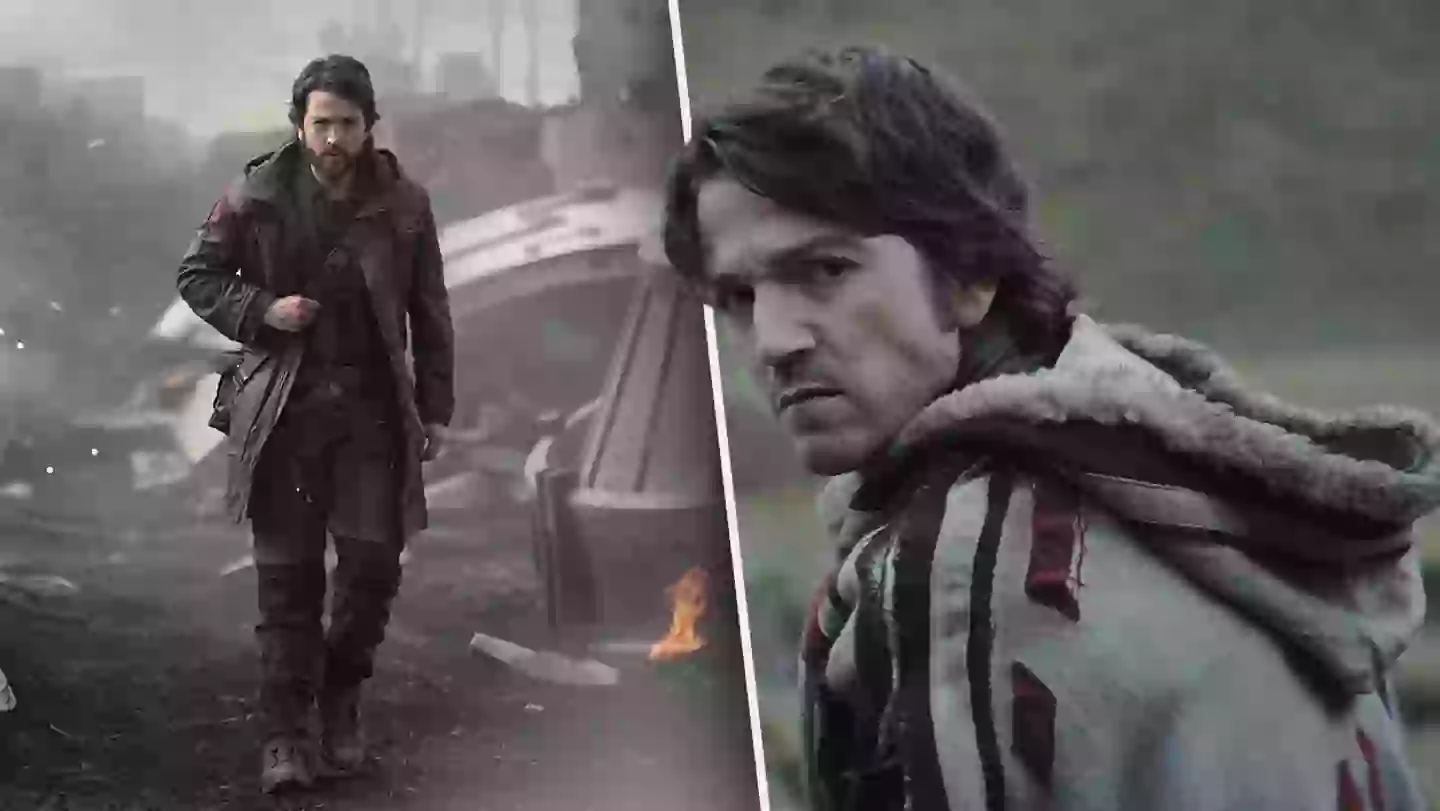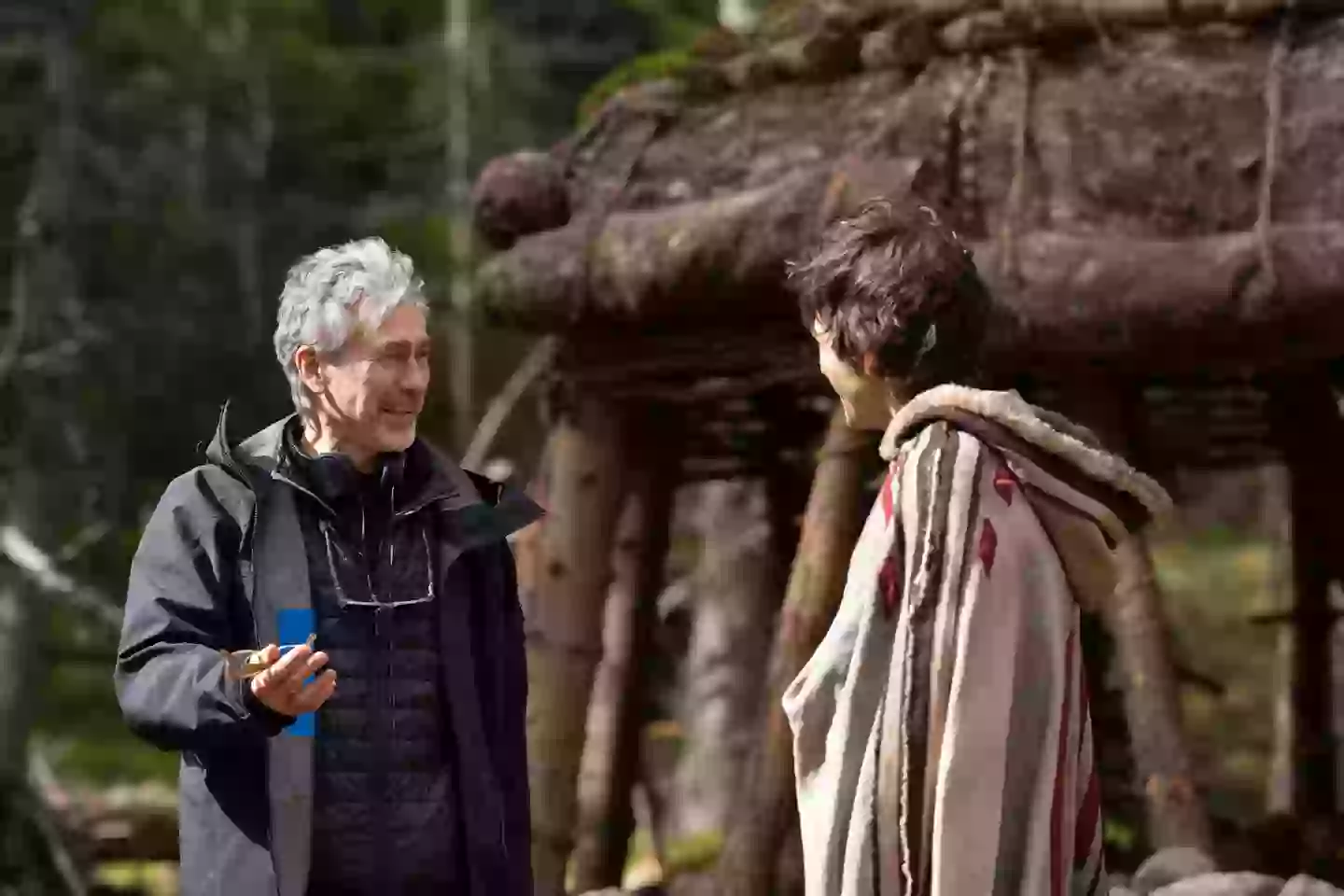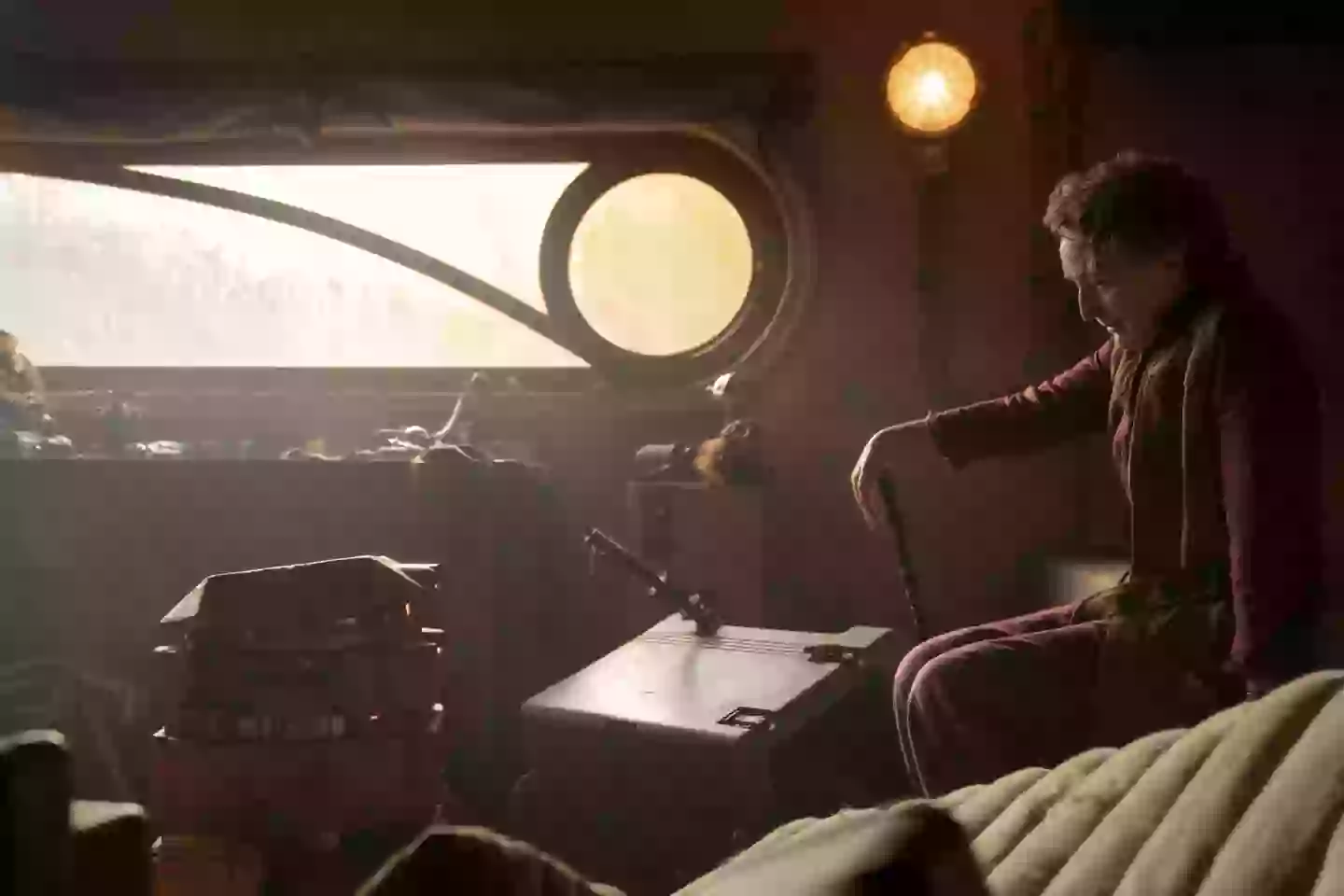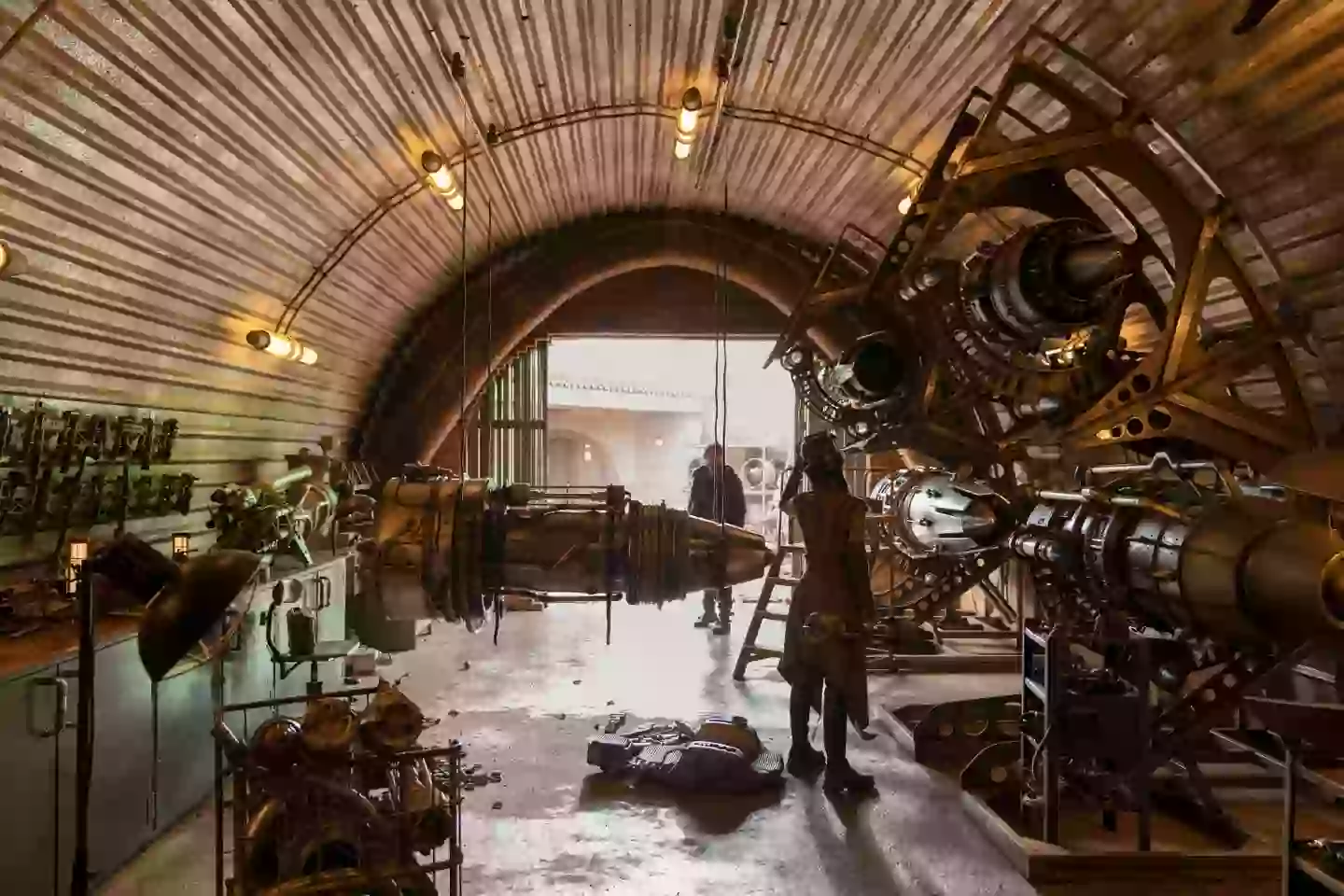
The day is almost upon us. Almost six years after he became a fan-favourite in Rogue One, rebel hero Cassian Andor returns to our screens in Star Wars: Andor. The series was officially unveiled back in 2020 and, to reward fans’ patience, Andor will make its debut on Disney Plus with a three episode premiere this Wednesday, 21 September.
Set five years prior to the events of Rogue One, Andor consists of 12 episodes that explore the origins of Cassian's involvement in the rebellion. Season one will span one year, with an upcoming second season bridging the four-year gap to Cassian’s meeting with Jyn Erso. Ahead of the series premiere, I had the chance to sit down with Diego Luna, who plays the titular character and also serves as an executive producer on the show, to chat about the long journey to making Andor and what life was like on set.
If you want to watch the video version of this interview, check it out below.
Congratulations on the series. I absolutely loved the opening four episodes, and I think fans will too. When you were filming Rogue One, how much of Andor’s backstory did you know, or has this series filled in a lot of gaps?
Advert
Luna: I knew very little to be honest. I’d created my own [backstory], you know, like I do with every character I play. You need to be able to answer every question and know where you're coming from and what the motivation is in everything, so I built my own. We talked a lot about it with the team back then and I have to say, it essentially is the same. We're talking about a dark past. We're talking about a character that has been forced to move - who is, you know, a refugee. We're talking about a wounded person.
I would also say that working with Tony Gilroy was a great opportunity to make sure we cover everything. We really want this character to become the one you met in Rogue One. We want you to believe it's possible even though we are going really far as possible away from the guy you meet in Rogue One. It still has to make sense, you know, it can’t come out of nowhere. That is what the challenge of this show is, which is amazing- well, one of the many challenges. It's how much of an interesting story we can have where you start in a place you're not expecting to start and, at the same time, give you all the answers in order to find out what needs to happen for someone to be able to sacrifice everything for a cost. How to get there is an interesting journey. It was really exciting because we found complete freedom, you know, there's so much you can do.

One of the things that's really interesting about the show is that it focuses on the lives of those who impacted and shaped Cassian as much as it does on Cassian himself. Were there any particular relationships in the show that you found really intriguing to explore?
Advert
Oh, yes - and it's something that I can probably say is new. It’s something that I didn't think about when I was filming Rogue One - about those relationships that you have in life, you know, that you always think of. Obviously, the relationship with Luthen (Stellan Skarsgård) is really strong, and Cassian’s relationship with Maarva (Fiona Shaw). That is something beautiful to witness and it's so crucial in his life, you know. Her example, it means so much and as an actor, knowing I'm going to get to collaborate with actors like Stellan and Fiona is just an amazing gift. They're amazing people to be around, and actors I admire. Executing this material with them was very special because the scenes are deep. They're interesting, they change. Sometimes it feels like doing theatre. You have this 10 minute scene, which is huge and so much happens, and there's an actual transformation happening in the scene. Building those scenes with these amazing partners and friends, it's been fascinating.

You mentioned how it felt like theatre, Luke Hull did a phenomenal job as production designer, creating such exquisitely detailed sets. How important were those sets to you as an actor?
It's the biggest difference to anything else I've done that has some connection with science fiction. We were in sets [on Andor] where things are actually there and they actually work - and you can actually use them and interact. It's unique, but it's not just the sets. It's the droids. It's the creatures. They're there, it's happening. It's a beautiful feeling, and what Luke brought is just that amazing specificity. The rooms, the sets have a meaning. Everything you had on set was answering a question. It wasn't there just because it's cool or it looks nice. No, there's a reason for things to be there, there is a use for them.
Advert
You want the show to feel realistic, as realistic as a galaxy far far away can be, and it's because of the work of Luke. I always love telling the story of where I remember in the house of Maarva and Cassian, there was one rehearsal where I said ‘Oh, this might be a good moment to open that drawer and get something out of there that would help me to do this other thing,’ and normally, on a rehearsal, you would say that in order for the team to bring something in and put it inside the drawer, but I opened the drawer and it was already full of things. Someone had already thought about it just in case you needed it. There is something there because there's a meaning for that thing to be there. You just go "wow." I can just experience the place and live the moment, you know, and as an actor, I can say that makes a big difference.
If they asked you to pilot, it's already weird to be thinking you're going into Hyperspace, but you sit down and you grab that thing, and it moves. You push a button and things happen - lights come on. Suddenly, it makes your job easier, it's happening. You start to move and you go, "Holy s**t, okay, I'm piloting. I can believe this is real. It doesn't happen all in my head. It's an experience I’m actually sharing with my fellow actors." I'm very pleased that we did it this way. I think the four and a half years we've been working on the show are there - everything is in front of the camera, and it took a long time to get there. I'm really proud.

And I know you're also an executive producer on the series, how did that role allow you to shape the show?
Advert
It's something that I don't know if I would have thought of any other way to be part of this show. Because in Rogue One, I got there when things were happening. You're the one that has to adjust and understand what's needed from you and work hard to get it. Here, it's different. I've been able to be a part of every decision. I've been part of the process. I understand why things are the way they are. I feel I belong and the project belongs to me, and that is a really special thing. It's four years of my life, you know, and I want to know why we're doing what we're doing. I want to be able to talk about the things that matter to me, and I've had that freedom here with this show - the freedom to be part of a team and collaborate with people that I've learned so much from but also that I enjoy and appreciate. It's something that as an actor, you don't get and I love producing, I love directing, and I don't see how I would have been able to come into this show without having the chance to have a voice. We also have a great leader here. Tony Gilroy is a man that understands collaboration in a very special way. I blame Tony Gilroy for that feeling of being part of something. He creates that environment where everyone feels proud of it and useful and it's just the best.
Star Wars: Andor premieres on Disney Plus on 21 September.